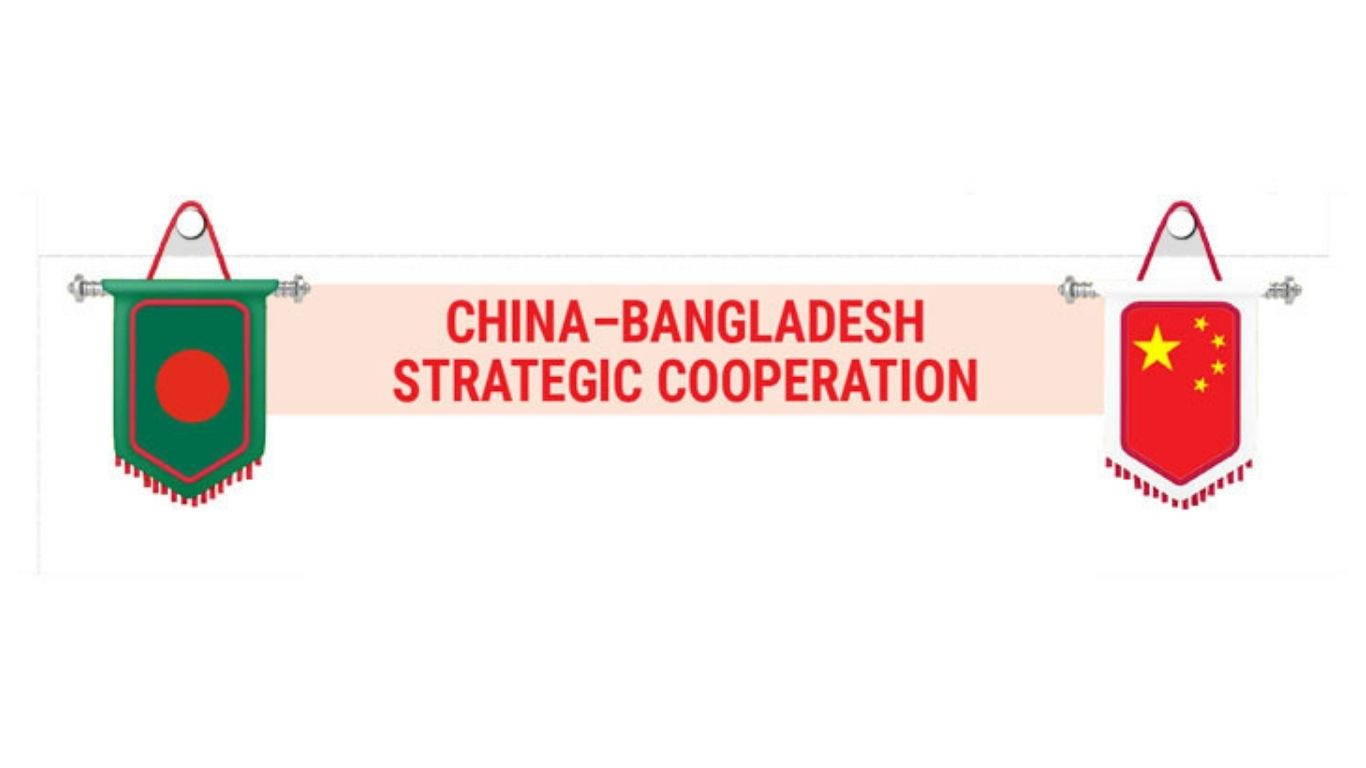
Marking five decades of ties, Dhaka and Beijing deepen strategic cooperation across infrastructure, defence, healthcare, and green transition, unlocking billions in investment and reshaping the nation’s growth trajectory
Bangladesh and China have launched a major new phase of strategic cooperation in 2025, marking five decades of diplomatic relations with an ambitious development agenda spanning industry, defence, healthcare, green energy, and urban infrastructure.
According to the Economic Relations Division (ERD), nine China-funded projects, worth about $6 billion, have been added to Bangladesh’s loan and grant pipeline.
The package includes roughly $4.06 billion in soft loans and $2 billion in grants, supporting initiatives such as the expansion of Mongla Port, nationwide 4G rollout via Teletalk, digital connectivity upgrades, and a new sewerage system under the Dasherkandi STP catchment in Dhaka.
Industrial zones and investment push
A centrepiece of the new cooperation is the Supporting Infrastructure for the Chinese Economic and Industrial Zone (CEIZ) in Anwara, Chattogram, developed under a government-to-government arrangement.
The Tk4,056 crore project, with Tk2,136 crore in Chinese financing under a Buyer’s Credit scheme, will be implemented by the China Road and Bridge Corporation (CRBC) between July 2025 and June 2029.
The CEIZ is part of a broader plan to attract over $1.5 billion in Chinese investment through three exclusive economic zones in Anwara, Chandpur and Bhola.
The Chandpur Economic Zone will be developed by PowerChina, while the Bhola Eco-Development Zone will be led by Leez Fashion Industries, a Chinese firm operating in Bangladesh. These projects aim to draw Chinese manufacturers diversifying amid global trade shifts and U.S.-China tensions.
Infrastructure and energy growth
Bangladesh-China infrastructure cooperation has expanded steadily since President Xi Jinping’s 2016 visit to Dhaka, when both sides signed a $20 billion MoU on investment and production capacity cooperation. So far, about $10.46 billion has been committed and $7.33 billion disbursed for transformative projects.
Key ventures include the Padma Bridge Rail Link ($2.67 billion), the Dhaka-Ashulia Elevated Expressway ($1.13 billion), and the Karnaphuli River Tunnel - South Asia’s first underwater tunnel.
Other projects target power generation, agricultural modernisation, and urban transport, advancing Bangladesh’s long-term infrastructure and development goals.
Defence partnership deepens
Bangladesh is also strengthening its defence ties with China. Under a $2.2 billion agreement, Dhaka will acquire 20 J-10CE multirole fighter jets by 2027, including training, maintenance, and logistics support. Payments will extend to FY2035-36.
Major General (Retd) ANM Muniruzzaman, President of the Bangladesh Institute of Peace and Security Studies (BIPSS), cautioned that geopolitical implications must be weighed carefully. “A new kind of geopolitical divide has formed in the world today, so the geopolitical impact must be analysed before buying aircraft from any country… though our need for fighter aircraft is undeniable.”
Climate resilience and green transition
Bangladesh is collaborating with China on water management, renewable energy and green infrastructure under the BRI Green Development Framework.
A key initiative – the Teesta River Comprehensive Management and Restoration Project – is a $550 million loan-funded plan launching in January 2026. It aims to convert 170 square kilometre into urban, agricultural, and industrial zones to mitigate flooding and boost regional growth.
China has already helped deploy 4.13 million Solar Home Systems, now powering 18 million rural residents, while Huawei and Walton are expanding local solar and battery manufacturing to support Bangladesh’s target of 40% renewable energy by 2041.
Healthcare and social infrastructure
Bangladesh has sought Tk3,425 crore in Chinese grants to build two advanced hospitals in Chattogram and Rangpur, aimed at reducing regional healthcare gaps.
The 500-700-bed Chattogram hospital will cost Tk2,627 crore, with Tk1,945 crore expected from China, while the 1,000-bed Rangpur hospital (Tk1,480 crore) will be fully grant-funded. Scheduled for completion by 2028, both will include ICUs, nursing colleges, diagnostic labs, and 1,200 dialysis machines nationwide.
Rail and urban infrastructure
China is donating 20 metre-gauge diesel-electric locomotives worth $130 million to Bangladesh Railway, along with training and technical support.
It has also provided $588 million in grants for bridges, disaster-management facilities, and a national conference centre.
Urban development projects include digital connectivity upgrades, waste-management systems, and smart-city pilot programmes, with additional support from the Asian Infrastructure Investment Bank (AIIB) for climate-resilient urban and solid-waste infrastructure.
Economist Dr Mustafa K Mujeri, Executive Director of the Institute for Inclusive Finance & Development (InM) and former Bangladesh Bank Chief Economist, said the expanded cooperation could be transformative.
“This partnership offers Bangladesh an opportunity not just to build physical infrastructure, but to enhance productivity, create jobs and integrate into global value chains. If managed well, it can lift the growth potential of the economy and deliver tangible benefits to ordinary people,” he said.
Chinese Ambassador Yao Wen reaffirmed Beijing’s commitment, “No matter what changes have taken place in Bangladesh, China’s commitment to developing our relations remains unchanged… We are ready to build development together on the basis of mutual respect and benefit.”
___________________________________________
The reporter can be reached at: [email protected]
Edited by: Anayetur Rahaman


